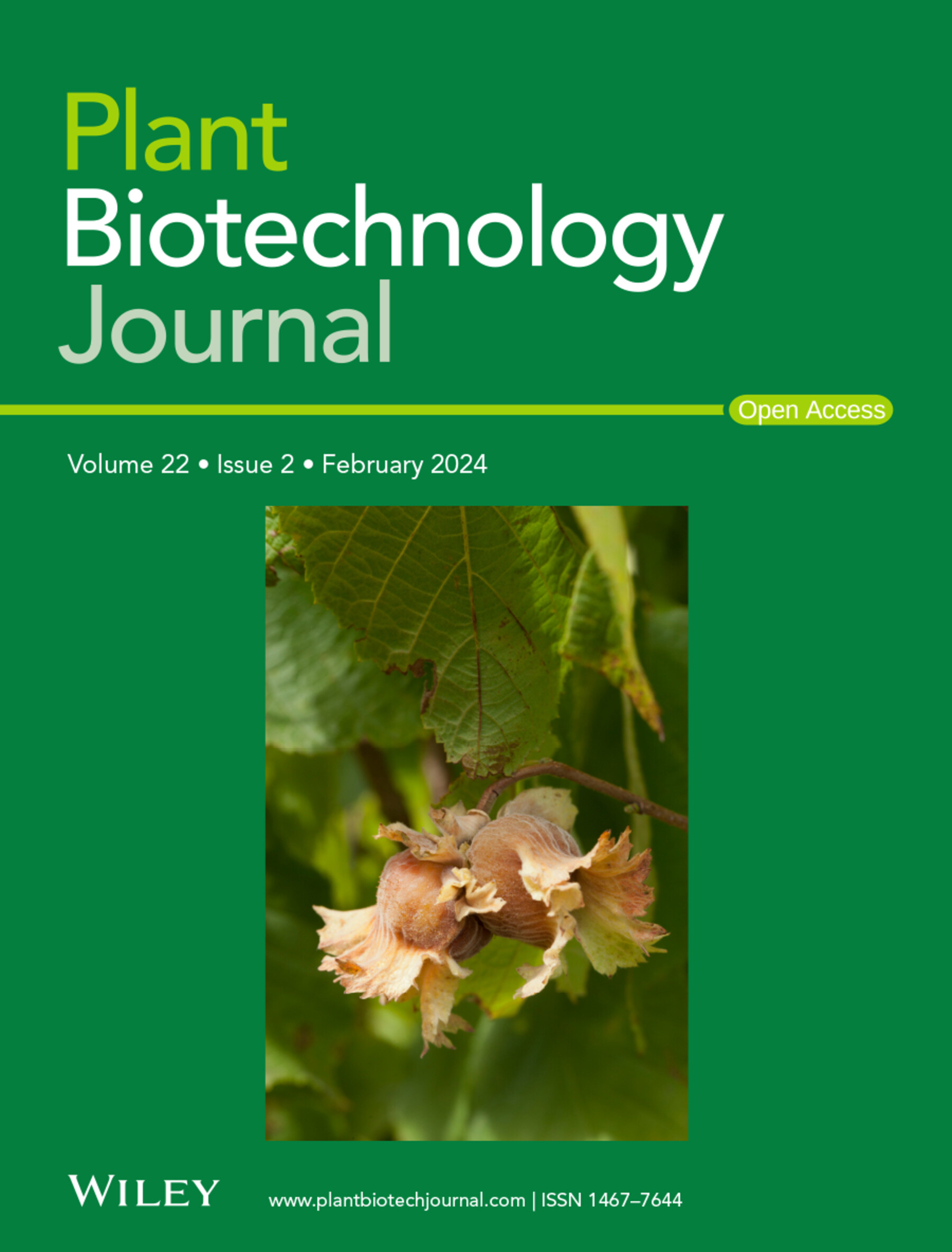Plant-produced SARS-CoV-2 antibody engineered towards enhanced potency and in vivo efficacy
IF 10.1
1区 生物学
Q1 BIOTECHNOLOGY & APPLIED MICROBIOLOGY
引用次数: 0
Abstract
Prevention of severe COVID-19 disease by SARS-CoV-2 in high-risk patients, such as immuno-compromised individuals, can be achieved by administration of antibody prophylaxis, but producing antibodies can be costly. Plant expression platforms allow substantial lower production costs compared to traditional bio-manufacturing platforms depending on mammalian cells in bioreactors. In this study, we describe the expression, production and purification of the originally human COVA2-15 antibody in plants. Our plant-produced mAbs demonstrated comparable neutralizing activity with COVA2-15 produced in mammalian cells. Furthermore, they exhibited similar capacity to prevent SARS-CoV-2 infection in a hamster model. To further enhance these biosimilars, we performed three glyco- and protein engineering techniques. First, to increase antibody half-life, we introduced YTE-mutation in the Fc tail; second, optimization of N-linked glycosylation by the addition of a C-terminal ER-retention motif (HDEL), and finally; production of mAb in plant production lines lacking β-1,2-xylosyltransferase and α-1,3-fucosyltransferase activities (FX-KO). These engineered biosimilars exhibited optimized glycosylation, enhanced phagocytosis and NK cell activation capacity compared to conventional plant-produced S15 and M15 biosimilars, in some cases outperforming mammalian cell produced COVA2-15. These engineered antibodies hold great potential for enhancing in vivo efficacy of mAb treatment against COVID-19 and provide a platform for the development of antibodies against other emerging viruses in a cost-effective manner.植物生产的 SARS-CoV-2 抗体经过工程设计,具有更强的效力和体内疗效
在高危患者(如免疫力低下者)中,可以通过注射预防性抗体来预防 SARS-CoV-2 引起的严重 COVID-19 疾病,但生产抗体的成本很高。与依赖生物反应器中哺乳动物细胞的传统生物制造平台相比,植物表达平台可大大降低生产成本。在这项研究中,我们描述了在植物中表达、生产和纯化最初的人类 COVA2-15 抗体的过程。我们在植物中生产的 mAbs 与在哺乳动物细胞中生产的 COVA2-15 具有相似的中和活性。此外,它们在仓鼠模型中预防 SARS-CoV-2 感染的能力也相似。为了进一步提高这些生物仿制药的效果,我们采用了三种糖和蛋白质工程技术。首先,为了延长抗体的半衰期,我们在 Fc 尾部引入了 YTE 突变;其次,通过添加 C 端 ER 保留基团(HDEL)优化了 N-连接糖基化;最后,在缺乏 β-1,2-木糖基转移酶和 α-1,3-岩藻糖基转移酶活性(FX-KO)的植物生产线上生产 mAb。与传统的植物生产的 S15 和 M15 生物仿制药相比,这些工程化生物仿制药表现出优化的糖基化、更强的吞噬能力和 NK 细胞活化能力,在某些情况下甚至优于哺乳动物细胞生产的 COVA2-15。这些工程抗体在提高针对 COVID-19 的 mAb 体内疗效方面具有巨大潜力,并为以经济高效的方式开发针对其他新出现病毒的抗体提供了一个平台。
本文章由计算机程序翻译,如有差异,请以英文原文为准。
求助全文
约1分钟内获得全文
求助全文
来源期刊

Plant Biotechnology Journal
生物-生物工程与应用微生物
CiteScore
20.50
自引率
2.90%
发文量
201
审稿时长
1 months
期刊介绍:
Plant Biotechnology Journal aspires to publish original research and insightful reviews of high impact, authored by prominent researchers in applied plant science. The journal places a special emphasis on molecular plant sciences and their practical applications through plant biotechnology. Our goal is to establish a platform for showcasing significant advances in the field, encompassing curiosity-driven studies with potential applications, strategic research in plant biotechnology, scientific analysis of crucial issues for the beneficial utilization of plant sciences, and assessments of the performance of plant biotechnology products in practical applications.
 求助内容:
求助内容: 应助结果提醒方式:
应助结果提醒方式:


